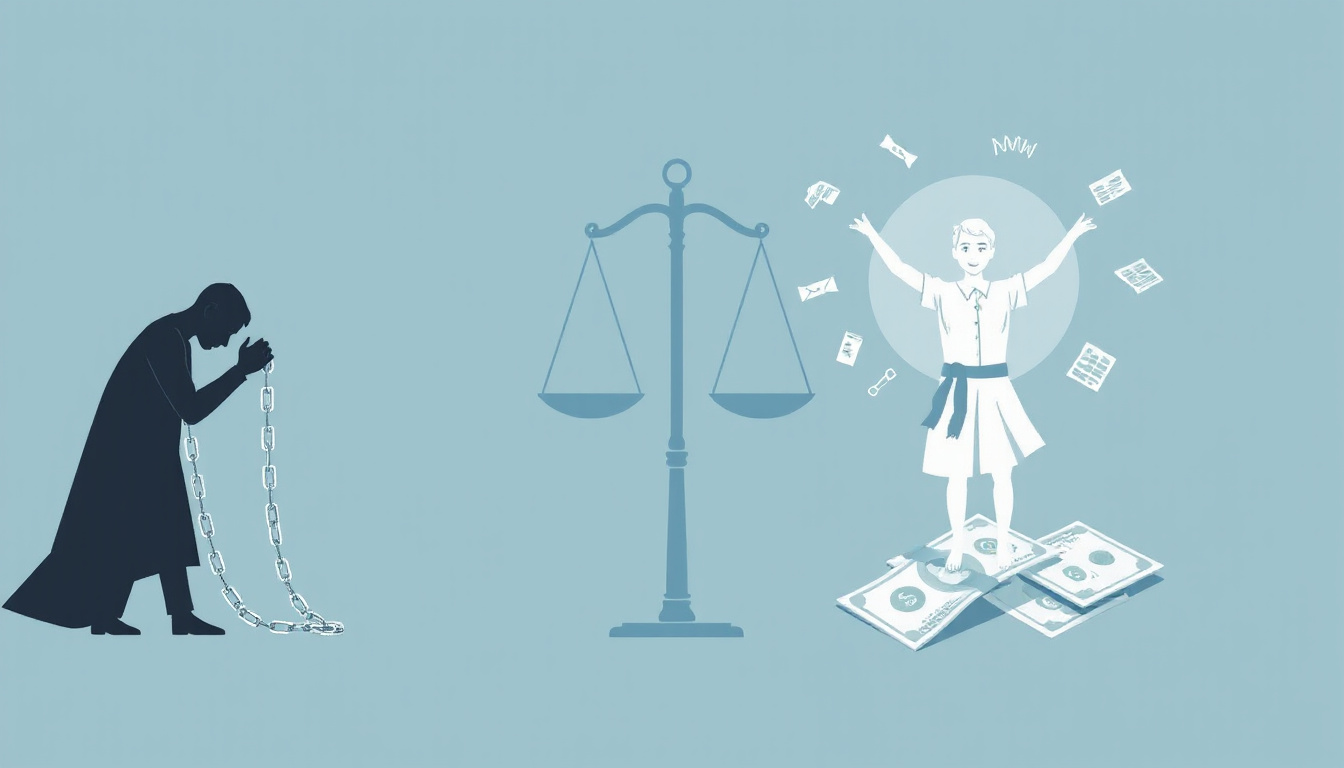Managing debt is a challenge that many Canadians face at some point in their lives. One common question that arises is, ‘Is it good to take a loan to pay off debt?’ The allure of consolidating outstanding debts into a single loan can be tempting. It promises simplicity and potentially lower interest rates. However, before making this financial decision, it is crucial to understand not only how loans work for debt consolidation but also the advantages and the pitfalls of such a strategy. In this article, we will delve into the ins and outs of debt consolidation, explore the pros and cons of taking a loan to pay off existing debts, and provide actionable insights to help you make an informed choice.

Key Takeaways
- Debt consolidation can simplify your payments and potentially lower interest rates.
- Taking a loan to pay off debt can lead to improved credit scores if managed correctly.
- Using a loan for debt repayment carries risks, including the potential for more debt if not disciplined.
- Consider the fees and terms associated with the loan before deciding on debt consolidation.
- Thoroughly evaluate your financial situation to determine if a debt repayment loan is a wise choice.
Understanding Debt Consolidation: How Loans Work
When faced with multiple debts, many Canadians wonder, ‘Is it good to take a loan to pay off debt?’ This is where debt consolidation comes into play, offering a viable solution that can simplify your financial life. Debt consolidation involves taking out a new loan to pay off several existing debts, effectively merging them into a single, manageable payment. The primary advantage of this strategy is that it often results in a lower interest rate compared to credit cards and other high-interest loans, which can save you money over time. Additionally, consolidating your debts into one loan means you only have to keep track of one payment due date, reducing the likelihood of missed payments. However, it’s crucial to evaluate the terms of the loan, as some options may come with fees or less favorable terms. Understanding the nuances of debt consolidation will empower Canadians to make informed financial decisions and take control of their financial well-being.
The Pros of Taking a Loan to Pay Off Debt
When considering whether ‘is it good to take a loan to pay off debt?’, it is essential to weigh the potential advantages of this strategy. By consolidating multiple debts into a single loan with a lower interest rate, you can simplify your monthly payments and possibly lower overall interest costs. This can lead to more manageable repayment schedules, making it easier for you to stay on top of your finances. Additionally, using a loan to pay off high-interest debts may improve your credit score over time, as reducing your credit utilization ratio and making timely payments can reflect positively on your credit history. Furthermore, a structured loan can offer a fixed term, allowing for clearer forecasting of your financial obligations and potentially offering peace of mind as you work towards financial stability. However, it’s crucial to ensure that this approach aligns with your overall financial strategy and that you are aware of any fees or terms associated with the new loan.
‘The only way to get rid of debt is to control your spending, and if you can’t do that, then a loan to pay off debt is only a temporary fix.’ – Suze Orman

The Cons and Risks of Using a Loan for Debt Repayment
When considering the question, ‘Is it good to take a loan to pay off debt?’, it’s essential to weigh the potential cons and risks involved. One major concern is that consolidating multiple debts into a single loan can sometimes lead to a false sense of security. Borrowers may feel relieved to have one streamlined payment, but if they don’t adjust their financial habits, they could find themselves accumulating new debt on top of their existing loan, pushing them further into financial instability. Additionally, taking out a loan to pay off debt often involves interest payments, which can compound the financial burden if the terms are not favorable. Variable interest rates may result in fluctuating payments, which can be difficult to manage. Furthermore, if the borrower has poor credit, they might be offered loans with higher interest rates, which could negate any potential savings from debt repayment. In summary, while a loan may seem like a straightforward solution, it’s crucial for Canadians to assess their overall financial health, budget constraints, and spending habits before making such a decision.
